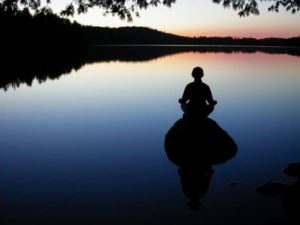AnxietyPath is a safe community environment supported by professional counselors. We are a free self help destination to receive support and guidance for recovery from anxiety and phobias
What Is Mindfulness And How It Applies To Recovery

In my opinion, the word ” mindfulness ” is one of the most misunderstood words circulating around today. I have seen the word misused by so-called “experts”, and I have spoken to people who are confused by what they have heard about it. On one hand I do not blame people for the confusion, but on the other hand, I do blame the so-called experts for not doing a better job explaining what it is.
So as a self-proclaimed “so-called expert” myself, I will try my best to demystify the word, mindfulness ;
Mindfulness is simply paying attention to directly what is in front of you, and to what you are doing at that moment.
That’s it in a nutshell. Now for the confusing explanation…
People naturally spend a lot of time daydreaming. Our thoughts are constantly occupied by past events or preparing for future events. One teacher, I had used to say, “we are always busy rehashing the past, or rehearsing for the future”. This is true for all people.
Rarely is our attention on what our hands are doing. The reason for this is much of our daily routines are the same day in, and day out. We can easily perform most of our daily tasks without thinking intently about them. This allows our minds to start to wonder and entertain thoughts of either past or future.
The problem for people who suffer from anxiety disorders (or depression) is that when our minds wonder it will always be towards fear (or regret) and this only allows our condition to worsen.
Mindfulness practice can be extremely beneficial for anxiety disorder recovery. All anxiety has a futuristic component to it. Anxiety disorders are when we worry about something bad happening with catastrophic results sometime in the future. 100% of anxiety is like this. The future can consist of one second into the future, up to an infinite amount of time into the future. But its always about “in the future”.
So mindfulness practice helps us to focus on what is happening right now at this moment. Remember, anxiety is our self-defense mechanism which is assessing danger and trying to protect us from danger. When a person responds to danger when no danger exists, it is because they are thinking to the future and “what if” something happens.
As a bridge phobic, where would my anxiety come from when I was nowhere near a bridge? I would be thinking to the future when I would be on a bridge and projecting my fears to that scenario, which would cause me to have higher levels of anxiety even though I was in no danger at all.
There are many ways to practice “ mindfulness ”. Meditation is one of the best ways. There is a lot of mystery surrounding this word also. I will not go into further detail in a post. However, if you would like additional information on this, please send me an email and I will send you the information. All too often people associate meditation with a religion, which it is not. Meditation is only a practice, like yoga for the mind, and requires no belief system or religious attachment. So I will share this information one on one as people are interested.
Otherwise, there are no shortages of books, videos, websites, etc. of people offering instruction on how to be mindful. I encourage you to find something that resonates with you personally and implement the practice of mindfulness into your life. It will help with creating recovery.
Fear To Fearless
Categories
© 2020 AnxietyPath Powered by G SOUL INC